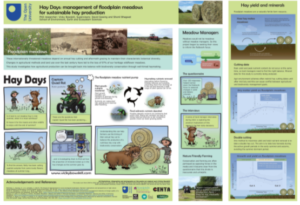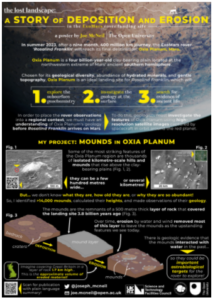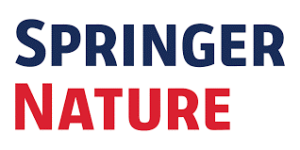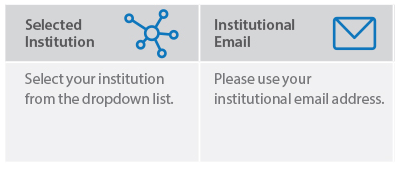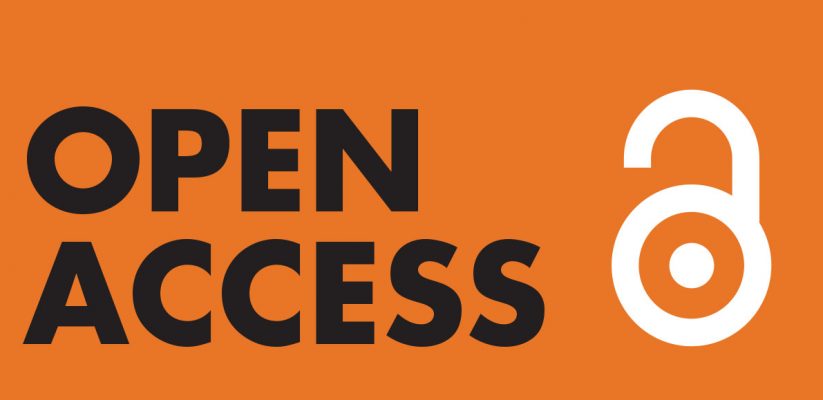Hi I’m Maxine. I’ve been a member of the Research Support Team since 2017 and part of my role has been to support and liaise with our PGR student community. In 2019 we trialled getting the submissions made to the annual Graduate School Poster Competition uploaded to ORO, with a winning collection of posters added to ORDO.
This was a great success, with students feeding back that having their posters in these public repositories has allowed them to share their research more readily with colleagues, friends, and family. Winning entries uploaded to ORDO also receive a DOI (a permanent, citable web link), allowing students to get better recognition for these outputs.
The winning collections of posters on ORDO from 2019 and 2020 have been viewed over 1400 times, which is not only great for the students in terms of exposure, but great for the OU too, as it helps to highlight the amazing work our PGR community is engaged with and the breadth of research being undertaken. Topics have varied from developing robots with common sense to researching 50 million-year-old fish teeth to determine ocean currents.
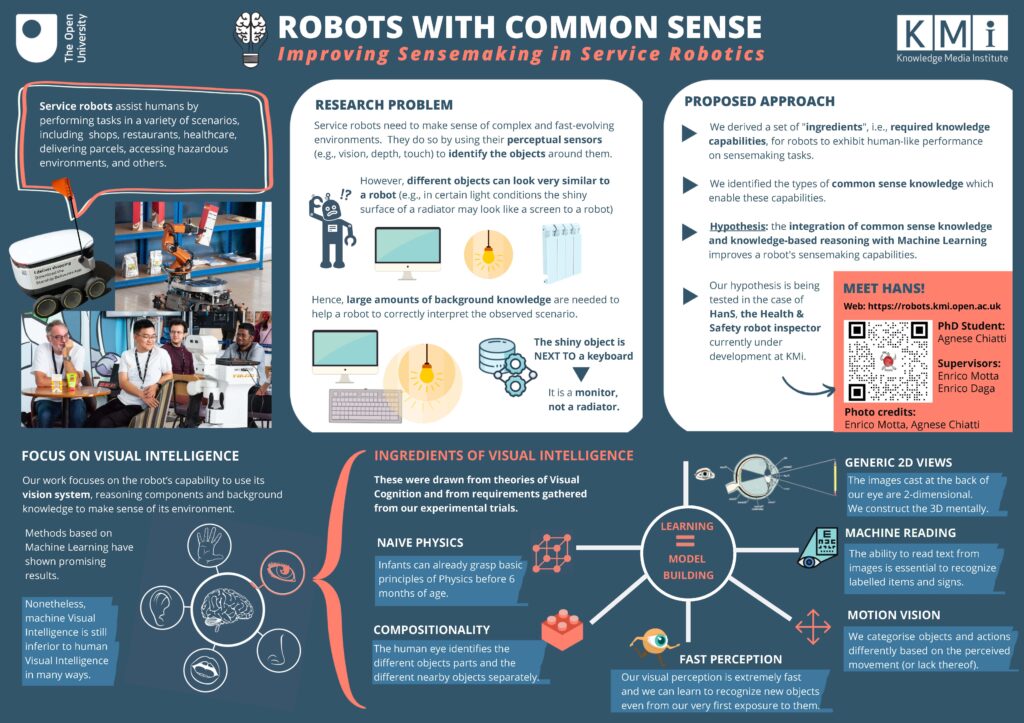
Although the results were great and we felt it was important to continue sharing these posters more widely, the amount of additional work this generated was too high to justify. Not only did we need to contact students to seek permission to upload their entries to an open access repository, and ask them to choose from a number of available licenses to share their work under, we also had to check students hadn’t included any third party copyright materials in their work. This inevitably generated a lot of chasing emails and a high volume of copyright and licensing queries. Even within our team, the nuances of copyright law and the different Creative Commons licenses can be tricky to navigate!
This year I’ve managed to work with the Graduate School to streamline the process. We are now asking students at the point of submission whether they’re happy to add their poster to the repository, as well as offering advice on copyright within the entry guidance, and we have restricted the license options to minimise the volume of queries generated. This means it should be far quicker to upload the content so that we can continue to showcase the excellent work of our PGR community!
The winners for this year’s Poster Competition are due to be announced at a celebratory event on 23 June 2021, led by the new Pro-Vice-Chancellor for Research, Enterprise and Scholarship, Professor Kevin Shakesheff. So, look out for the 2021 entries landing on ORDO and ORO soon!




